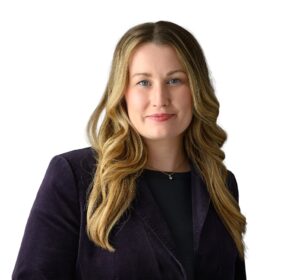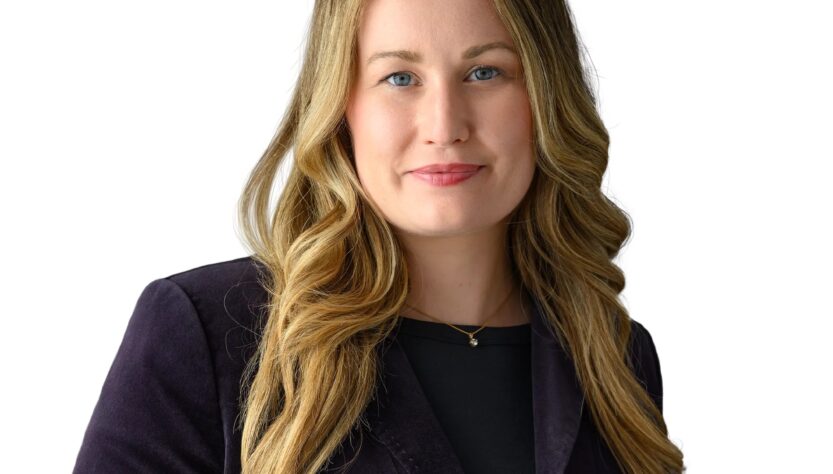
Elizabeth Anscombe (Courtesy photo)
Scandals of any kind keep general counsel awake at night, and a lingering question may be who’s in charge when it comes time to handle these highly sensitive corporate investigations, which may revolve around allegations of fraud, corruption, or worse. Luckily, there are specialized firms out there that will work diligently to gather information in these high-profile matters. What does one of these investigations look like, and how are outside counsel involved?
I recently had the pleasure of chatting with Elizabeth Anscombe, the chief business development and marketing officer at Nardello & Co., one of the world’s top corporate investigations firm, to get her thoughts on the matter. Here is a write-up of our lively conversation.
Staci Zaretsky (SZ): Corporate investigations have been growing at a rapid pace, and they may see continued growth under the incoming presidential administration. What does that mean for Nardello’s oftentimes high-profile work?
Elizabeth Anscombe (EA): The corporate investigations market is indeed growing, and we are expanding to keep up with it. This fall we opened an office in San Francisco, giving us eight offices around the world, and we moved into a new office in New York that is twice the size of our previous office.
Our cyber work in particular has grown and will likely continue to grow. Both new offices include cyber forensic labs with cutting-edge tools to support investigations in cyber digital forensic and incident response, deepfake forensic analysis, and cryptocurrency tracing.
It’s always hard to predict the changes with any new administration. While generally speaking there may be the expectation of less regulation with the incoming Trump administration, one never knows. In any event, our core business — litigation support, activist defense, and asset tracing — is really not affected by a change in administration.
Furthermore, the cases we take on span multiple jurisdictions. There is always a war, a changing sanctions regime, or socio-economic developments that have an impact on the nature or volume of cases that we handle.
But do these factors impact how we handle our casework or dictate our approach or methodology? Not really. High-profile work, such as ours, requires each case be treated on its individual merits and case strategies are constantly reviewed and adjusted based on those merits.
SZ: Can you please tell me a little about your firm’s work in conjunction with law firms, specifically, Biglaw firms? I know, for example, that Nardello worked with Sullivan & Cromwell on the FTX collapse.
EA: We work extensively with the world’s leading law firms. Ultimately, our role is to provide actionable (and legally admissible) evidence to our clients. That is a broad objective, and our role is as varied as the universe of matters any Biglaw firm might handle. Complex, high-stakes cases are where our clients see the value in our expertise — and that is what they typically come to us for. Our work can range from verifying the credibility of whistleblower claims in high-profile bribery and corruption cases, to obtaining evidence to dismantle government claims of white-collar crime, to assisting with the enforcement of arbitral awards.
Just in the last week, since the shooting of United Healthcare’s CEO, we have seen a considerable uptick in the number of inquiries around physical security and risk mitigation. Perhaps not surprisingly, lawyers are being asked by their clients to help assess, among other things, their physical and cyber vulnerabilities, assess their online risk profile and/or provide a solution for physical security.
In the case of FTX, we were instructed by the new CEO to work with Sullivan & Cromwell to (among other things) assist in the tracing of $9 billion of assets following the platform’s collapse and recover those assets for creditors. Similarly, we have worked for Akin Gump pro-bono to recover assets for the families of Sandy Hook victims.
SZ: What are some of the ethical boundaries that must be adhered to in the course of corporate investigations?
EA: It comes down to three things. First, there is an ethical duty of care to our clients not to waste their time or provide information that isn’t usable and might have reputational ramifications down the line. Outside of the US in particular, the investigations sector is much less regulated (no license is required, for example, in the UK). And so there are plenty of bad actors who will provide intelligence that a client can’t do anything with — or who will engage in illegal, much less unethical, practices in obtaining that intelligence and end up harming the client. We are aware of the ethical and legal obligations in all the jurisdictions in which we work and are single minded about honoring those obligations. Acting with integrity is paramount.
There is also a duty of care to the individuals conducting the investigation. Certain regions, China for example, have shown themselves to be hostile towards our sector. Oftentimes, being on the ground and obtaining valuable information for a client, can put investigators in dangerous situations. And so there is constant balance of doing things the right — and smart — way for our clients, and those parties involved in the exercise of gathering intelligence.
Finally, in some of our work there is also a duty of care to the individuals involved in the course of an investigation. Protecting whistleblowers or witnesses where possible, particularly in hostile jurisdictions and politically adverse circumstances, where there is the possibility that their testimony will be disclosed in court.
SZ: Why do you think that some lawyers opt for careers with investigations firms over careers with law firms?
EA: Lawyers don’t typically think of working for investigations firms at the start of their careers. Sometimes people don’t realize the sector exists until they work in a law firm or prosecutor’s office and see it firsthand. And — if they are like me — once you’re a part of it, you’re hooked. There is a degree of creativity that is required, alongside the technical and legal know-how that is both challenging and stimulating. At Nardello, you can have two bankruptcy matters land on your desk, for example, and the approach and plan required will be completely different for each.
And lawyers can make very good investigators. Having that “legal DNA” and understanding what evidence will further your clients’ case as opposed to information that is just “good to have” is critically important skill. Our Biglaw clients appreciate the lawyers on our teams.
Many of the lawyers that work for us previously served as federal prosecutors. The firm’s founder, Dan Nardello, was a federal prosecutor in the US Attorney’s Office for the Southern District of New York before joining the investigations sector. It seems the career change worked out pretty well for him.
On behalf of everyone here at Above the Law, we’d like to thank Elizabeth Anscombe for taking the time to help answer these questions on corporate investigations work.
 Staci Zaretsky is a senior editor at Above the Law, where she’s worked since 2011. She’d love to hear from you, so please feel free to email her with any tips, questions, comments, or critiques. You can follow her on Bluesky, X/Twitter, and Threads, or connect with her on LinkedIn.
Staci Zaretsky is a senior editor at Above the Law, where she’s worked since 2011. She’d love to hear from you, so please feel free to email her with any tips, questions, comments, or critiques. You can follow her on Bluesky, X/Twitter, and Threads, or connect with her on LinkedIn.

